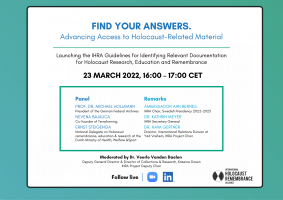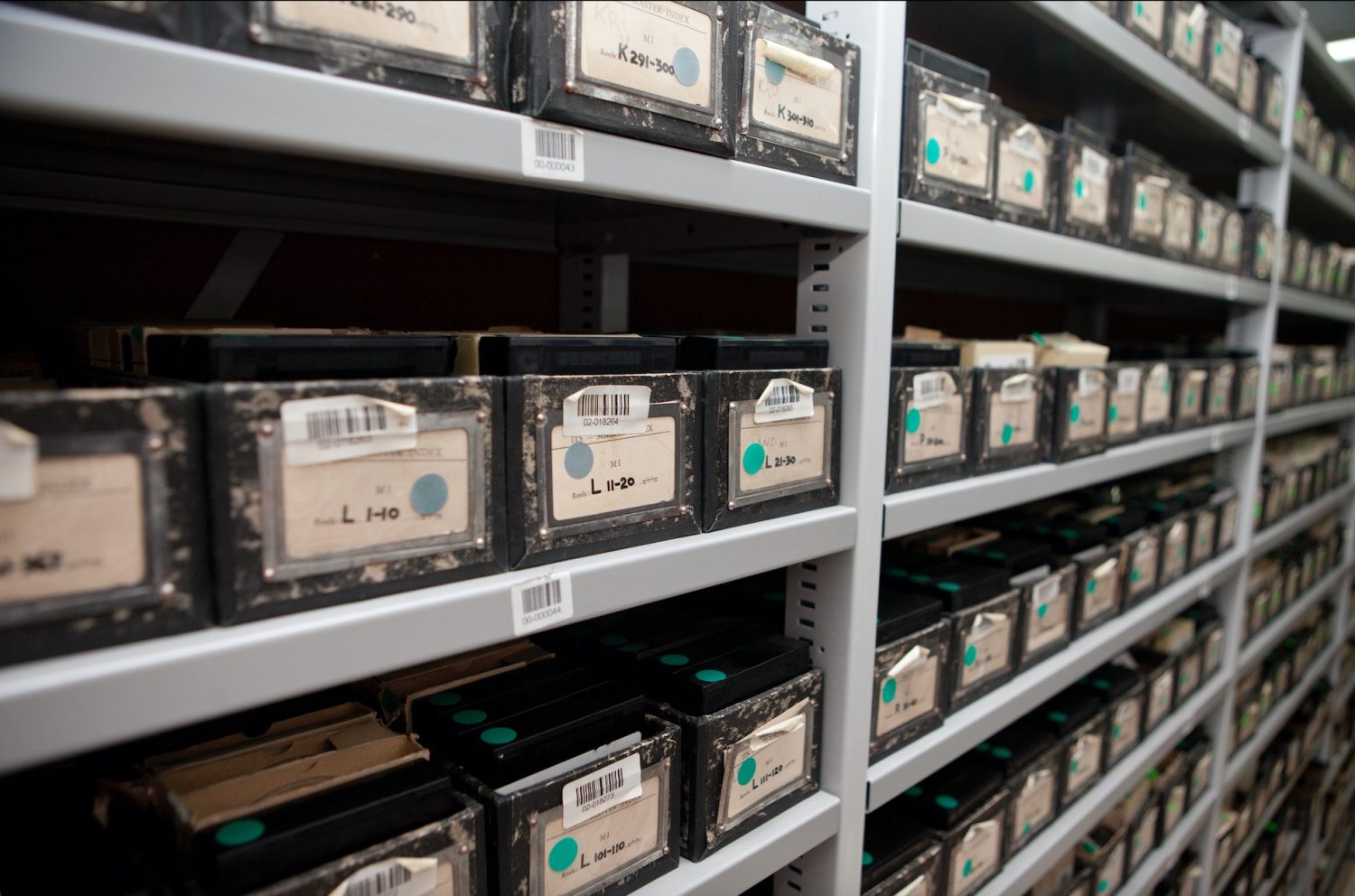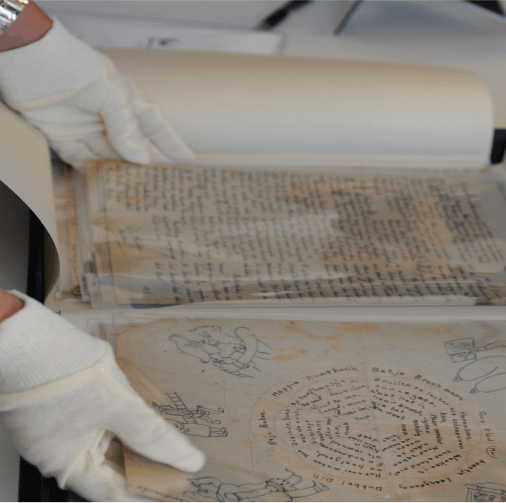
IHRA Guidelines Presented to Heads of Archives
The IHRA presented its resource on advancing access to Holocaust-related archival material to leading archival experts at the extraordinary European Board of National Archivists/European Archives Group (EBNA/EAG) conference on “Archives and the culture of remembrance.” The meetings allowed for distinguished representatives to exchange on recent developments in the field, such as the publication of the IHRA’s Guidelines for Identifying Relevant Documentation for Holocaust Research, Education and Remembrance.
All contributions from the conference, which was held in August 2022, have now been made publicly available in the latest edition of Forum, the Bundesarchiv’s magazine.
Presentation highlighted IHRA commitment to advancing access to archival material
During her presentation, Senior Project Researcher Elinor Kroitoru provided an overview of how the IHRA has worked to advance access to archival material, including conducting a major survey on common barriers to access, developing Recital 158 in the GDPR, which allows EU member states to provide researchers with access to Holocaust-related material that contains personal information, and monitoring access to a number of archives around the world.
Kroitoru encouraged the representatives to turn to the IHRA’s Guidelines when making decisions on whether to grant access to archival material when the decision depends on whether the material is Holocaust-related.
Download the IHRA Guidelines to help advance Holocaust research.
EAG and EBNA are critical partners
The EAG is made up of the directors of national archives in the EU and representatives of the European Commission unit for “Transparency, Document Management & Access to Documents.” EBNA encompasses national archives beyond the EU. The two organizations come together every six months to exchange good practices.
The IHRA’s Guidelines, which encourage archivists, researchers, and policymakers to identify Holocaust-related materials in a way that advances access, were born out of an EBNA/EAG meeting.
“It was two years ago – when we were presenting the IHRA’s Monitoring Access to Holocaust Collections Project at an EBNA/EAG meeting – that we realized that this type of resource was needed,” Project Chair Dr. Veerle Vanden Daelen (BE) said. “It really feels like we’ve come full circle. We’re very happy we were able to present the final product at the place where it all began.”
The resource, which went through multiple rounds of revisions and expert review, also saw a number of EBNA/EAG experts, including Dr. Michael Hollmann, head of the Bundesarchiv in Germany, provide feedback. The organizations have proven to be critical partners throughout the process of developing and disseminating the Guidelines.
Learn more about all contributions made at the EBNA/EAG conference.
Sign up to our newsletter to
receive the latest updates
By signing up to the IHRA newsletter, you agree to our Privacy Policy




